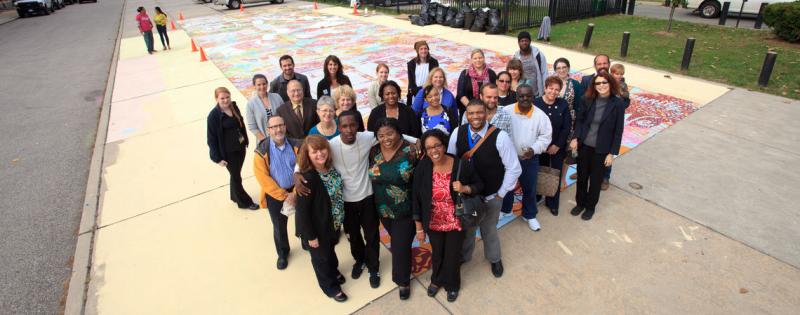Advocacy in Action by Jessica Simon
“Speak up,” snaps the woman on the phone line curtly as I watch Samantha*, a patient with severe mental health problems, struggle to explain that she needs a new CPAP machine because she suffers from sleep apnea. After a few more moments, the tone sounds to signify that the woman on the other line has hung up. Samantha’s therapist and I stare at each other in disbelief; how could this woman be so impatient? It is not her fault of course, how could she know that Samantha has severe trauma from being caught in a fire that burned down her house? How could she know that Samantha cannot use her old CPAP machine mask because she believes it smells like smoke? How could she know that Samantha refuses to see her grandson because he is afraid that she will die in her sleep?
Samantha’s case demonstrated to me the true need for advocacy: the readiness to support and sometimes even fight on behalf of individuals to assist in navigating the complexities of our healthcare system. As a Patient Advocate at the 11th Street Family Health Services of Drexel University, I have had the opportunity to observe and contribute to advocacy in action, assisting patients with insurance applications and connecting them to social services, such as housing, meal services, and mental health resources. This role is extremely rewarding when I see the impact it can have in someone’s life, shown through the sigh of relief of a struggling pregnant single mother when her insurance is approved or by a hug from an older individual who has a limited support system.

Throughout my term of service, I have consistently been impressed by the population we serve, by their resilience and positivity in the face of instability and crisis. Even so, considering all of the paperwork, information, and time required to apply for social benefits, the task can become daunting. An insurance application, for example, may require several phone calls and persistent follow up work due to lost paperwork, mail sent to the wrong address, miscommunications, and a number of other issues that may arise. When people have other pressing issues in their lives, it helps take a weight off to have someone advocating for them and assisting them to overcome barriers in accessing health resources and other social benefits.
Advocacy, however, of course has its limits. It can be difficult when someone is denied Medicaid because they make $5 over the income limit or when I tell someone they have to wait a year for open enrollment period to apply for Marketplace insurance. Sometimes it requires serious commitment and persistence: in Samantha’s case it took about fifteen phone calls and four different durable medical equipment companies, but after weeks of pushing I am proud to say that she now sleeps safely and soundly with the comfort of a fresh and functioning CPAP machine. Despite the challenges, at the end of the day I know that my successes contribute to the work of many advocates across the state and the country, together making a true difference in the lives of underserved populations and contributing to nationwide improvement of public health.
*patient name changed to protect privacy
Picture Provided by: http://porchlightvirtualtour.org/uploads/files/150424695509531705-2013-0...